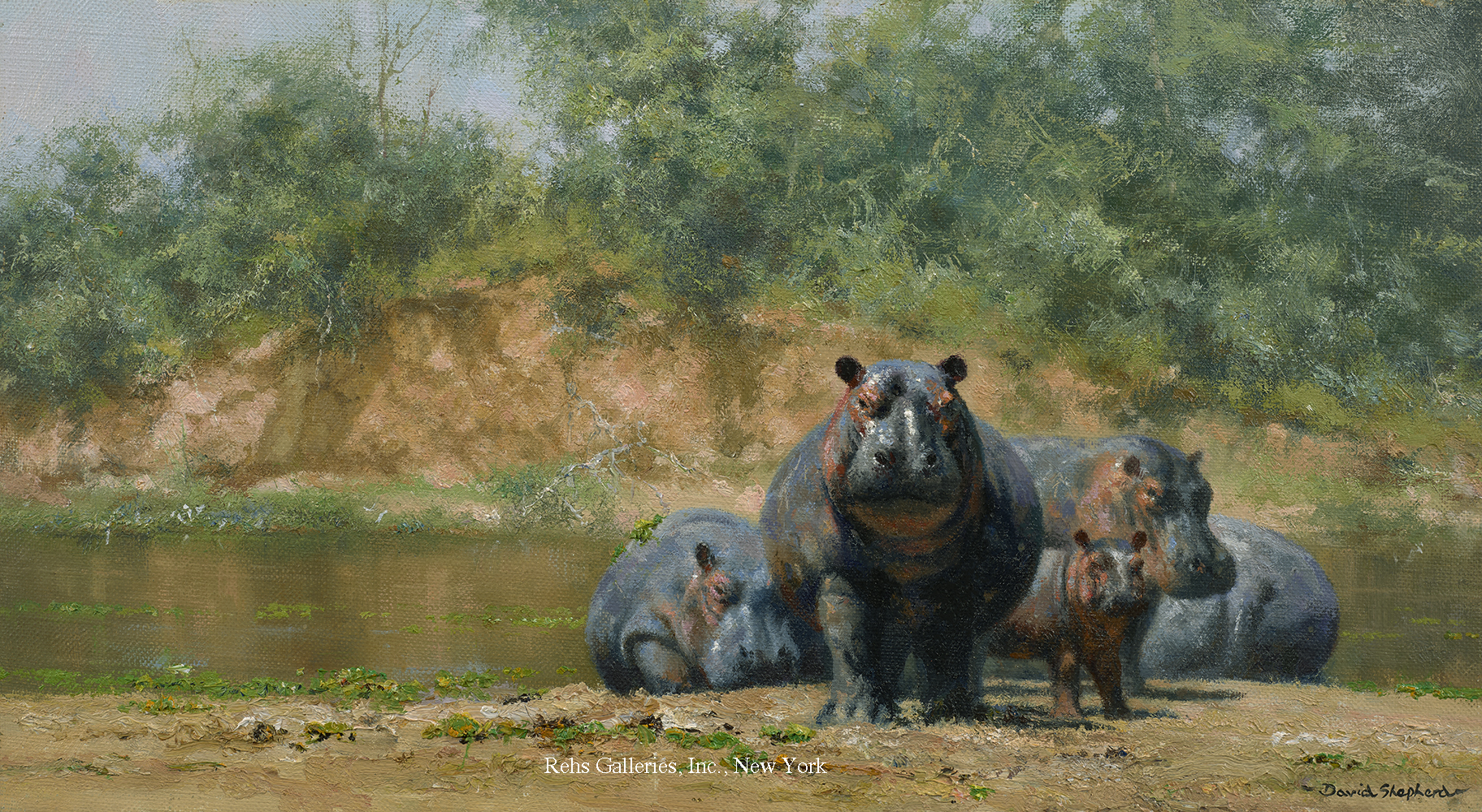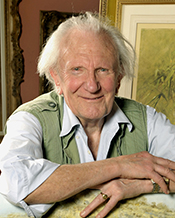|
David Shepherd (1931 - 2017)

About your purchase...
- Purchases outside the continental US - please call for shipping rates
- New York state residents are charged sales tax
The work(s) of art is/are sold by the Seller and purchased by the buyer upon the following terms and conditions:
1. Except as otherwise provided herein or elsewhere agreed in writing, payment in full is due and payable on the date of the invoice.
2. This is an invoice only. Title to the work(s) of art purchased shall not pass until payment in full has been received.
3. All applicable sales taxes have been charged on this transaction. The payment and remittance of use tax is the Buyer’s obligation. Seller reserves the right to collect out-of-state sales taxes from the buyer after the sale if seller becomes assessed with them.
4. The Buyer’s sole remedy for breach of any implied or express warranty therein shall be an action for rescission and, in any event, the absolute limit of the Seller’s liability and responsibility hereunder shall under no circumstances exceed the total sales price and seller shall not be responsible for any special, incidental, or consequential damages or lost profits.
5. A non-exclusive right to reproduce the work(s) of art is reserved by the Seller.
6. Risk or loss of the work(s) of art purchased shall pass to the Buyer upon delivery by the Seller to the address specified by the Buyer.
7. In accordance with the UCC and the New York Arts and Cultural Affairs Law, Seller guarantees that the work(s) of art purchased is by the named artist. If such work(s) proves not to be of such authorship as described, Seller will accept the return of the work(s) and return the sales price in full.
8. Any disputes arising out of this sale shall be governed by the laws of the State of New York without regard to its choice of law provisions, and shall be submitted to the American Arbitration Association for an arbitration to be held before a single arbitrator in New York City, New York. The prevailing party in such arbitration shall be entitled to its costs and attorneys’ fees in connection with such arbitration proceeding, and the costs of enforcement and collection of any resulting arbitral award.
EXCEPT FOR THE WARRANTY OF AUTHENTICITY SET FORTH ABOVE, NO WARRANTIES OR AGREEMENTS, EXPRESS OR IMPLIED, INCLUDING WARRANTIES OF MERCHANTABILITY OR FITNESS FOR A PARTICULAR PURPOSE, HAVE BEEN MADE BY THE SELLER.
|
|
SOLD
David Shepherd
(1931 - 2017)
Hot Hippos
Oil on canvas
9 x 16 inches
Framed dimensions:
14.75 x 21.75 inches
Signed
Provenance
The artist
The Tryon Gallery, London
Private collection
Rehs Galleries, Inc., New York
|
BIOGRAPHY
 David Shepherd was a British painter and conservationist best known for his wildlife paintings. Shepherd was born in Hendon, in northwest London, in 1931. After completing secondary school in Buckinghamshire, he hoped to travel to Kenya to become a game warden. Unfortunately, he was rejected. While working as a hotel receptionist, he made paintings of local birds to sell to locals, which paid for his return ticket to Britain. Having shown artistic talent as a child, Shepherd applied for admission at the Slade School of Fine Art in London. However, he was rejected from this as well. He was thinking about becoming a bus driver and giving up artistic pursuits entirely until he met the painter Robin Goodwin at a cocktail party. Goodwin mainly specialized in marine painting and portraiture. While he did not take on students, he agreed to let Shepherd work as his studio assistant.
Remembering the dogfights over London in the early 1940s, Shepherd started specializing in aviation painting. He began creating detailed paintings of passenger and cargo aircraft with the help of a permit allowing him access to Heathrow Airport. He ended up giving away his finished work to airline employees, hoping that he would catch their attention and earn commissions from the companies. This proved a sound tactic since airlines soon commissioned him to create paintings to decorate their offices and boardrooms. He also received commissions from the military for paintings depicting aircraft and other vehicles as well as historical scenes, mainly from the Second World War. It wasn’t until 1960 that Shepherd entered what he later became best known for: wildlife painting. That year, the Royal Air Force flew him to Kenya to create works showing the country's natural beauty for the airbase at Embakasi. Though having never focused on wildlife aside from the birds from his previous African trip, he made one painting of a rhinoceros chasing a plane down a runway, selling it to the RAF for £25. And just like that, one of the most successful careers in wildlife painting began. While painting all sorts of animals on that trip, he came across a watering hole poisoned by poachers, with an entire herd of over two hundred zebras lying dead around it. Shepherd pointed to this moment when he started taking more interest in conservationism.
During his trips to East Africa, Shepherd created his most iconic work. It is a lone elephant bull depicted facing directly towards the viewer in the middle of the grasslands. This painting later became known as Wise Old Elephant. By 1962, its reproductions became one of the most popular prints in Britain. Shepherd’s popularity got him his first solo exhibition in 1962 at London’s Tryon Gallery, which only brought him greater recognition. After a sold-out show in New York in 1967, Shepherd indulged one of his other passions. On top of wildlife and aviation, David Shepherd loved the railways. During the late 1960s, Britain began replacing its steam locomotives with diesel-powered engines. Shepherd ended up with three steam engines in his backyard. Wishing to preserve the memory of Britain’s old steam railways, in 1975 he founded the East Somerset Railway, which operates steam locomotives on nearly two miles of track between Cranmore and Mendip Vale.
Despite being primarily known as a painter, his conservation efforts were what earned him his most prestigious awards. In 1979, Shepherd became a member of honor of the World Wildlife Fund, later founding his own organization, the David Shepherd Wildlife Foundation, in 1984. In 1980, he was made an officer of the Order of the British Empire by Queen Elizabeth II. He would later be elevated to the rank of commander in 2008. At the time of his death, he was also a fellow of the Royal Society of Arts, the Royal Geographical Society, and the Guild of Railway Artists. David Shepherd passed away on September 19, 2017.
|
|


